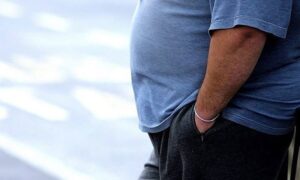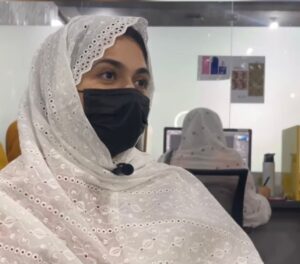PESHAWAR – In Khyber Pakhtunkhwa, naswar — a cheap, smokeless tobacco — is found in the pockets of almost every third man and many boys.
For a few rupees, shopkeepers tear open thumb-sized plastic sachets and pour the fine brown grit into waiting palms. By afternoon, the marks are everywhere, drying like old blood. The act feels harmless, almost folkloric — a ritual of boredom, pride, or defiance. It is anything but.
Each year, more than 100,000 Pakistanis are buried earlier than they should be, their lungs, hearts, and throats consumed by tobacco. In Khyber Pakhtunkhwa — the province whose peaks draw tourists for their clean air — the disease burden climbs faster than anywhere else.
Walk through any bazaar here and the statistics become faces. A stall-owner rubs swollen gums while counting change. A college student tucks a pouch into his cheek before boarding the bus he will one day drive instead of finishing his degree. Nationwide surveys say one in five adults use tobacco; among teenagers, the habit can begin as early as grade six. Here, the gateway is almost always the same: cheap, smokeless, and easy to hide from parents and teachers.
What starts as playground bravado hardens into dependency. By the time breath comes short or blood appears in the sink, the mountains feel very far from help.
Promises on paper, smoke in the air
The state has spoken often. Two decades ago, Pakistan signed the world’s first public-health treaty — the WHO Framework Convention on Tobacco Control — promising to ban smoking in public spaces, enforce graphic health warnings, raise taxes, and fund quit programmes.
In Khyber Pakhtunkhwa, those promises echo like shouts across a ravine: loud, clear, and ultimately empty. A provincial tobacco bill drafted in 2022 still waits for a committee meeting.
Graphic warnings must cover 85 percent of a cigarette pack — yet single cigarettes, stripped of all labels, sell for less than a samosa outside school gates. Smoke-free rules are posted inside cafés where water pipes hiss at every table. Advertisements are banned, yet bright murals still promise “taste” and “tradition” above rows of parked motorbikes.
Where the law falls silent, clever economics take over. Locally produced cigarettes and smuggled packs slip through borders like smoke through fingers, untaxed and often cheaper than a cup of tea. Campaigners speak of lost revenue that could build entire hospital wards, while patients are carried down rutted roads to under-funded clinics.
The province’s annual budget for all non-communicable diseases combined — including cancers, strokes, and heart attacks — would barely cover the fuel bill of a single convoy of official cars clogging city intersections each evening. There is no toll-free quitline. No traveling health team weaving through mountain passes with nicotine gum. No shelter for families already coughing up their future.
The map everyone pretends not to see
And yet, the treaty that gathers dust on ministry shelves already contains the map. Monitor use through regular surveys. Enforce bans in restaurants, buses, and wedding halls. Offer help through trained community health workers who already visit homes to vaccinate babies. Place hard-hitting warnings on every product. Penalize shopkeepers in ways that hurt more than the price of a packet. Raise taxes until tobacco no longer looks cheap.
Some fixes require no new funding. Health workers who measure blood pressure could ask about chew habits and hand out a two-week supply of nicotine patches. Existing tobacco tax revenue could be ring-fenced for treatment instead of melting into general budgets. A provincial law could say: sell within 500 meters of a school and lose your license — no appeals, no second warning.
Even the narrative could change. Headlines that celebrate narcotics seizures could also confront the addiction sold openly at every corner shop.
A slow suffocation
Until such choices are made, the valleys will remain breathless. Mothers will keep sweeping red-brown stains from verandas. Fathers will keep measuring life in crushed sachets. And children will keep learning that the mountains are beautiful — but the air they breathe is laced with betrayal.












